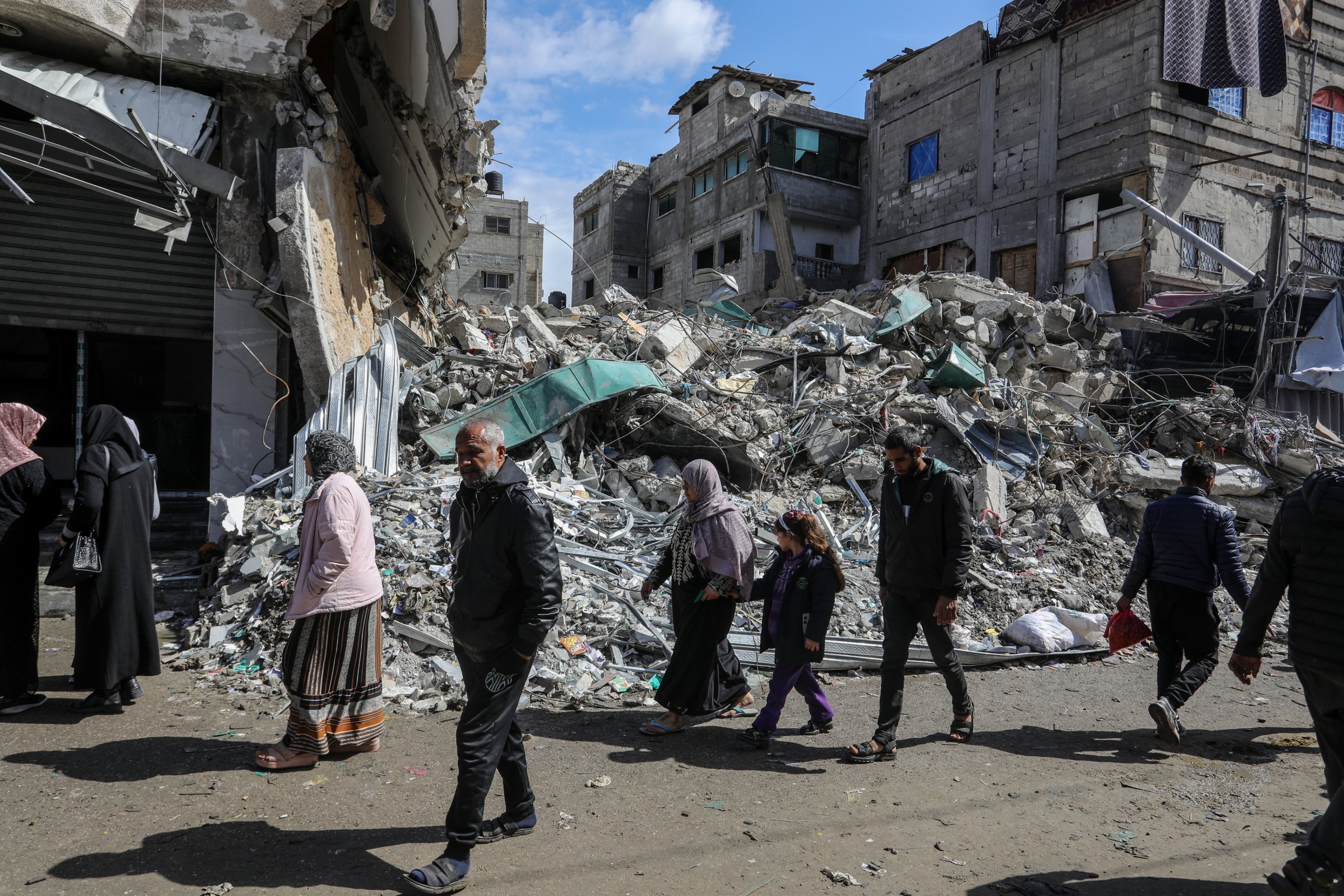© Turkuvaz Haberleşme ve Yayıncılık 2024
Mediators working towards a cease-fire in Gaza faced growing obstacles Thursday as Israel's war entered its sixth month with dozens more killed.
The ministry said 83 more people had been killed over the previous day, adding to a toll it says has reached 30,800, mostly women and children, in a war that China called "a disgrace to civilization".
Israel launched its brutal war after the Oct. 7 Hamas incursion that resulted in about 1,160 deaths, according to official figures.
The resistance members also took around 250 Israeli and foreign hostages, some of whom were released during a weeklong truce in November. Israel believes 99 of them remain alive in Gaza and that 31 have died.
Hamas negotiators returned from Cairo for consultations as a cease-fire, reportedly held up by Israel, looks unlikely before the Islamic holy month of Ramadan, which begins as early as Sunday depending on the sighting of the crescent moon.
Mediators in Egypt have also struggled to overcome tough obstacles while the United Nations has repeatedly warned that famine looms for Palestinians trapped by the fighting.
By late January the war had damaged around half of all buildings in Gaza and rendered the territory "uninhabitable" for its 2.4 million people, a U.N. agency said, warning the impact would only worsen if the war continued.
The Health Ministry on Wednesday said 20 people have died of malnutrition and dehydration, at least half of them children. One of the latest victims was a 15-year-old girl who died at Gaza City's al-Shifa Hospital, it said.
Only limited aid has reached Gaza's north.
The United Nations on Wednesday again cited "access constraints" as among the factors limiting essential water and other services, while United States Vice President Kamala Harris has said Israel "must not impose any unnecessary restrictions" on aid delivery.
"Children are dying of hunger-related diseases and suffering severe levels of malnutrition," the World Food Programme (WFP) said.
In the wasteland of Jabalia, northern Gaza, Palestinians gathered to receive free meals at a donation point.
"There is no gas to cook our food on. There is no flour or rice," said Bassam al-Hou, standing beside large, blackened cooking pots among the dusty rubble.
He said children "are dying and fainting in the streets from hunger. What can we do?"
The Health Ministry said more than 100 people were killed by Israel last week in its botched attempt to control an aid route.
Another truck convoy was diverted by Israeli troops within Gaza late on Tuesday and then stopped by "a large crowd of desperate people who looted the food", the WFP said.
Such incidents will continue unless aid can "really flood" the north, said James McGoldrick, interim U.N. humanitarian coordinator for the Palestinian Territories.
"We've been given the green light" from Israeli authorities to use a military road on the eastern side of Gaza to reach the north, McGoldrick said.

In Khan Younis, southern Gaza's largest city, dozens of people went to inspect their homes and take what belongings they could recover after Israeli forces pulled out of the city center, an AFP correspondent said.
Gaza's Civil Defense agency said Israeli forces "destroyed all water, sewage, electricity, communications, and road networks" in central Khan Younis.
The army has yet to respond to an AFP request to confirm a withdrawal from the area, but both the army and Hamas authorities said military operations were continuing in the city's western area.
Witnesses told AFP violent clashes had also occurred in the Zeitun district of Gaza City and Shuka, a village in Rafah, where around 1.5 million people have sought refuge near the Egyptian border but have been unable to escape the fighting.
Hala Hazem Hamada, 15, was rescued on Tuesday after three days under the rubble of a home where her family had sought shelter near Khan Younis. An encounter with Israeli troops left six members of her family dead, including her parents.
